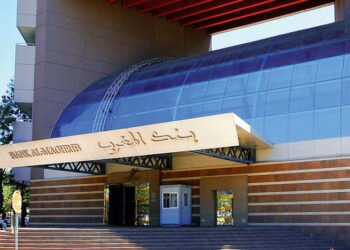According to Dr. Edward Omane Boamah, NDC’s Director of Elections and IT, a consensus was reached at the recent IPAC meeting that new registrants, including students and security personnel, will not be able to transfer their votes until the provisional register is made available, upholding the integrity of the electoral process.
Accordingly, he emphasized that eligibility for electorates to have their votes transferred hinges on being a registered voter, as defined in Regulation 50 of CI 127, which specifically means being listed on the provisional voters register.
As such, he indicated that this clarification is essential to ensure that only qualified individuals can apply.
“This means that a person seeking to be placed on the transferred voters’ list must have their name on the provisional voters register. If not, they do not qualify for a transfer, regardless of being a student or a member of the security services on special duties”.
Dr. Edward Omane Boamah
Furthermore, he pointed out that Regulations 22-24 of CI 91, as outlined by the Electoral Commission (EC), offer comprehensive guidelines on the provisional voters register, providing clarity and specificity on this critical aspect of the electoral process.
As such, emphasized that the Commission has a statutory obligation to compile a comprehensive provisional register of voters within three months of the registration period’s close, incorporating essential details such as name, age, gender, residential address, and photograph for each successful applicant.
Accordingly, Dr. Omane Boamah explained that the provisional register is then shared with registered political parties, made available for public scrutiny, and published on the Commission’s website, ensuring transparency and accessibility to all stakeholders.
Moreover, Dr. Omane Boamah noted that the Commission is mandated by Regulation 27 of CI 91 to certify the register after thoroughly addressing and resolving any claims or objections, ensuring the integrity and accuracy of the electoral roll.
Accordingly, he outlined that the certification process involves a multi-step procedure, comprising fingerprint matching, data analysis, multiple registration adjudication, and a comprehensive review by an Adjudication Review Committee, to guarantee the reliability and validity of the voter register.
“Once certified, the register is published and replaces any existing voter register”. – Dr. Edward Omane Boamah
Additionally, he indicated that following certification, the Commission issues an official copy of the updated voter register to registered political parties and other authorized individuals or groups, as designated by the Commission.
Furthermore, Dr. Omane Boamah clarified that although students and security personnel on special duties are exempt from the 12-month residency requirement for transferring their votes, they must still be listed on the provisional voters register to be eligible for the transfer.
As such, he stressed that this measure guarantees transparency and accountability, enabling political parties and the general public to confirm the legitimacy of individuals on the transfer voters list, ensuring the integrity of the electoral process.
Ghana Card Abuse Addressed
Moreover, Dr. Edward Omane Boamah revealed that during the IPAC meeting, stakeholders addressed concerns about the misuse of Ghana Cards by certain Electoral Commission registration officials and minors who illegitimately registered to vote using Ghana Cards.

Accordingly, He pointed out that all stakeholders at the meeting emphasized the urgent need for the National Identification Authority (NIA) to address its internal issues, particularly as the Ghana Card is likely to become the sole identifier for voter registration following the 2024 elections.
“On the stolen biometric equipment at the headquarters of the EC under CCTV surveillance, the EC committed to engaging their lawyers to aid them answer the aspects of the 35 questions I posed at IPAC that will not prejudice the outcome of the criminal case in court. We also emphasized the need for a parliamentary inquiry”.
Dr. Edward Omane Boamah
Additionally, he stated that stakeholders pledged to collaborate with the Electoral Commission’s IT team to take the necessary measures to guarantee an accurate and reliable voter register.
Regarding network failures, Dr. Edward Omane Boamah stated that the EC’s IT Team, along with MTN, the network provider, will attend the next IPAC meeting to thoroughly address this persistent issue, aiming to prevent a recurrence on December 7, 2024.
READ ALSO: A Bright Spot in a Gloomy Market




















